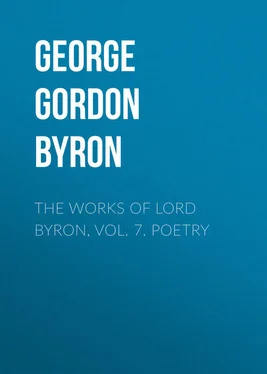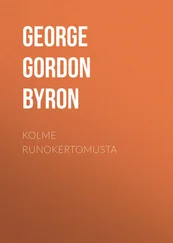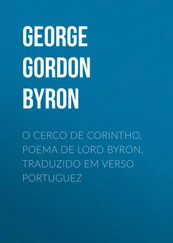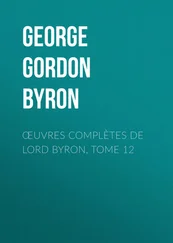George Gordon Byron - The Works of Lord Byron, Vol. 7. Poetry
Здесь есть возможность читать онлайн «George Gordon Byron - The Works of Lord Byron, Vol. 7. Poetry» — ознакомительный отрывок электронной книги совершенно бесплатно, а после прочтения отрывка купить полную версию. В некоторых случаях можно слушать аудио, скачать через торрент в формате fb2 и присутствует краткое содержание. ISBN: , Жанр: foreign_antique, foreign_prose, foreign_poetry, на английском языке. Описание произведения, (предисловие) а так же отзывы посетителей доступны на портале библиотеки ЛибКат.
- Название:The Works of Lord Byron, Vol. 7. Poetry
- Автор:
- Жанр:
- Год:неизвестен
- ISBN:http://www.gutenberg.org/ebooks/27577
- Рейтинг книги:5 / 5. Голосов: 1
-
Избранное:Добавить в избранное
- Отзывы:
-
Ваша оценка:
- 100
- 1
- 2
- 3
- 4
- 5
The Works of Lord Byron, Vol. 7. Poetry: краткое содержание, описание и аннотация
Предлагаем к чтению аннотацию, описание, краткое содержание или предисловие (зависит от того, что написал сам автор книги «The Works of Lord Byron, Vol. 7. Poetry»). Если вы не нашли необходимую информацию о книге — напишите в комментариях, мы постараемся отыскать её.
The Works of Lord Byron, Vol. 7. Poetry — читать онлайн ознакомительный отрывок
Ниже представлен текст книги, разбитый по страницам. Система сохранения места последней прочитанной страницы, позволяет с удобством читать онлайн бесплатно книгу «The Works of Lord Byron, Vol. 7. Poetry», без необходимости каждый раз заново искать на чём Вы остановились. Поставьте закладку, и сможете в любой момент перейти на страницу, на которой закончили чтение.
Интервал:
Закладка:
18
["On a leaf of one of his paper books I find an epigram, written at this time, which, though not perhaps particularly good, I consider myself bound to insert." – Moore, Life , p. 137, note 1. The reference is to Moore's M.P.; or, The Blue Stocking , which was played for the first time at the Lyceum Theatre, September 9, 1811. For Moore's nom de plume , "The late Thomas Little, Esq.," compare Praed's The Belle of the Ball-Room —
"If those bright lips had quoted Locke,
I might have thought they murmured Little."]
19
Is fame like his so brittle ? – [ MS .]
20
["A person observing that Mr. Dallas looked very wise on a certain occasion, his Lordship is said to have broke out into the following impromptu." — Life, Writings, Times, and Opinions of Lord Byron , 1825, ii. 191.]
21
["Lord Byron to Editor of the Morning Chronicle .
Sir, – I take the liberty of sending an alteration of the two last lines of stanza 2d, which I wish to run as follows: —
'Gibbets on Sherwood will heighten the scenery,
Shewing how commerce, how liberty thrives.'
I wish you could insert it tomorrow for a particular reason; but I feel much obliged by your inserting it at all. Of course do not put my name to the thing – believe me,
Your obliged and very obedient servant, BYRON.8, St. James's Street,
Sunday , March 1, 1812."]
22
[For Byron's maiden speech in the House of Lords, February 27, 1812, see Letters , 1898, ii. 424-430.]
23
[Richard Ryder (1766-1832), second son of the first Baron Harrowby, was Home Secretary, 1809-12.]
24
Lord E., on Thursday night, said the riots at Nottingham arose from a " mistake ."
25
[Caroline Rosalie Adelaide St. Jules (1786-1862) married, in 1809, the Hon. George Lamb (see English Bards, etc ., line 55, Poetical Works , 1898, i. 300, note 1), fourth son of the first Viscount Melbourne.]
26
[Moore's " Intercepted Letters; or, The Twopenny Post-Bag , By Thomas Brown, the Younger," was published in 1813.]
27
[James Henry Leigh Hunt (1784-1859) was imprisoned February, 1813, to February, 1815, for a libel on the Prince Regent, published in the Examiner , March 12, 1812. — Letters , 1898, ii. 205-208, note 1.]
28
[For "Sotheby's Blues," see Introduction to The Blues, Poetical Works , 1901, iv. 570, et ibid ., 579, 580.]
29
[Katherine Sophia Manners was married in 1793 to Sir Gilbert Heathcote. See Letters , 1898, ii. 402, 406.]
30
[See Catullus , xxix. 1-4 —
"Quis hoc potest videre? quis potest pati,
Nisi impudicus et vorax et aleo,
Mamurram habere, quod Comata Gallia
Habebat uncti et ultima Britannia?" etc.]
31
[One evening, in the late spring or early summer of 1813, Byron and Moore supped on bread and cheese with Rogers. Their host had just received from Lord Thurlow [Edward Hovell Thurlow, 1781-1829] a copy of his Poems on Several Occasions (1813), and Byron lighted upon some lines to Rogers, "On the Poem of Mr. Rogers, entitled 'An Epistle to a Friend.'" The first stanza ran thus —
"When Rogers o'er this labour bent,
Their purest fire the Muses lent,
T' illustrate this sweet argument."
"Byron," says Moore, "undertook to read it aloud; – but he found it impossible to get beyond the first two words. Our laughter had now increased to such a pitch that nothing could restrain it. Two or three times he began; but no sooner had the words 'When Rogers' passed his lips, than our fit burst forth afresh, – till even Mr. Rogers himself … found it impossible not to join us. A day or two after, Lord Byron sent me the following: – 'My dear Moore, "When Rogers" must not see the enclosed, which I send for your perusal.'" — Life , p. 181; Letters , 1898, ii. 211-213, note 1.]
Thurlow's poems are by no means contemptible. A sonnet, "To a Bird, that haunted the Water of Lacken, in the Winter," which Charles Lamb transcribed in one of Coleridge's note-books, should be set over against the absurd lines, "On the Poems of Mr. Rogers."
"O melancholy bird, a winter's day
Thou standest by the margin of the pool;
And, taught by God, dost thy whole being school
To Patience, which all evil can allay:
God has appointed thee the fish thy prey;
And giv'n thyself a lesson to the fool
Unthrifty, to submit to moral rule,
And his unthinking course by thee to weigh.
There need not schools nor the professor's chair,
Though these be good, true wisdom to impart;
He, who has not enough for these to spare
Of time, or gold, may yet amend his heart,
And teach his soul by brooks and rivers fair,
Nature is always wise in every part."
32
[ Hermilda in Palestine was published in 1812, in quarto, and twice reissued in 1813, as part of Poems on Various Occasions (8vo). The Lines upon Rogers' Epistle to a Friend appeared first in the Gentleman's Magazine for April, 1813, vol. 83, p. 357, and were reprinted in the second edition of Poems, etc. , 1813, pp. 162, 163. The lines in italics, which precede each stanza, are taken from the last stanza of Lord Thurlow's poem.]
33
["On the same day I received from him the following additional scraps ['To Lord Thurlow']. The lines in Italics are from the eulogy that provoked his waggish comments." — Life , p. 181. The last stanza of Thurlow's poem supplied the text —
"Then, thus, to form Apollo's crown,
(Let ev'ry other bring his own,)
I lay my branch of laurel down."]
34
[Lord Thurlow affected an archaic style in his Sonnets and other verses. In the Preface to the second edition of Poems, etc. , he writes, "I think that our Poetry has been continually declining since the days of Milton and Cowley … and that the golden age of our language is in the reign of Queen Elizabeth."]
35
The Devil's Drive. A Sequel to Porson's Devil's Walk. – [MS. H.]
36
["I have lately written a wild, rambling, unfinished rhapsody, called 'The Devil's Drive,' the notion of which I took from Porson's Devil's Walk ." — Journal , December 17, 18, 1813, Letters , 1898, ii. 378. "Though with a good deal of vigour and imagination, it is," says Moore, "for the most part rather clumsily executed, wanting the point and condensation of those clever verses of Coleridge and Southey, which Lord Byron, adopting a notion long prevalent, has attributed to Porson." The Devil's Walk was published in the Morning Post , September 6, 1799. It has been published under Porson's name (1830, ed. H. Montague, illustrated by Cruikshank). (See Poetical Works , 1898, i. 30, note 1.)]
37
[Lord Yarmouth, nicknamed "Red Herrings," the eldest son of the Regent's elderly favourite, the Marchioness of Hertford (the "Marchesa" of the Twopenny Post-Bag ), lived at No. 7, Seamore Place, Mayfair. Compare Moore's "Epigram: " "'I want the Court Guide,' said my lady, 'to look If the House, Seymour Place, be at 30 or 20,'" etc. — Poetical Works , 1850, p. 165.]
Читать дальшеИнтервал:
Закладка:
Похожие книги на «The Works of Lord Byron, Vol. 7. Poetry»
Представляем Вашему вниманию похожие книги на «The Works of Lord Byron, Vol. 7. Poetry» списком для выбора. Мы отобрали схожую по названию и смыслу литературу в надежде предоставить читателям больше вариантов отыскать новые, интересные, ещё непрочитанные произведения.
Обсуждение, отзывы о книге «The Works of Lord Byron, Vol. 7. Poetry» и просто собственные мнения читателей. Оставьте ваши комментарии, напишите, что Вы думаете о произведении, его смысле или главных героях. Укажите что конкретно понравилось, а что нет, и почему Вы так считаете.












